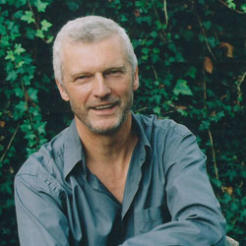The fly on the wall series continues to monitor the progress of Time Banks UK's new chair of trustees, Martin Farrell.
I'm well beyond my honeymoon. I've chaired five board meetings and can't claim to be the new boy any more. My initial enthusiasm remains and is helping me stay optimistic although I know, like lots of small emerging organisations, that we're building on shaky foundations
From 2006 we will reduce our board meetings from six to four a year; with proper planning that should be enough. We're getting the mechanics of the meetings sorted: agendas go out a week ahead; we're getting better at deciding what needs to be at the meeting for information, for discussion, for decision; and, although it's no-one's favourite job, we get minutes out within a few days.
These things are more than practicalities. They all send a powerful signal from the top about how the whole organisation and the time banking movement conducts its business. Start at the top. Yes, what we're doing matters enough for us to be well organised.
No one really knew whether we wanted some staff, other than the director, to attend board meetings, so we took a positive decision that they would be welcome. This was one of many apparently small decisions that add up to making a big difference.
The UK office is in Gloucester and the meetings are in London so the director has to make thoughtful decisions about who comes and for what. We had two important strategic issues at our last meeting, both presented by staff: working creatively and well with London colleagues (a third of the 76 time banks are in London); and, the new improved software which each time bank uses to manage the time exchanges everyday. (The brilliant thing about this software is that it instantly adds up into the national database so that at any moment, we know how many hours have been given and received throughout the UK).
Giving and receiving has been with us for as long as there have been people. Anthropologists tell us that this reciprocity is hard wired into us, a fundamental part of our human nature. But it was Edgar Cahn, lawyer and civil rights champion, who created today's concept of 'time dollars', which in the UK we call 'time credits'.
We know that the time banking model can build communities throughout the world. Time banking is happening in 20 countries so far. But we are a tiny organisation and although the notion of a global movement has a certain appeal, I have to remind myself to keep my feet on the ground. Build from where we are.
Like many organisations, we have had to live with insecure funding, one year at a time. We've received a small one year grant from the Home Office in each of the last three years. Although we've got our financial management arrangements sorted, our finances remain fragile. Like many other organisations, the necessary form was duly completed and submitted. With an uneasy a mix of high hopes and nagging anxiety, we knew we had to wait two months for an answer.
Time Banks UK exists to support time banking as a tool to build social networks by using time as a medium of exchange. Everyone's skills are of equal value with each hour given earning one time credit which can be used to buy help from others. One hour = one time credit. For more information about time banking see www.timebanks.co.uk
Martin Farrell is chair of Time Banks UK









